What are the essentials of project management? Project management is the process of applying knowledge, skills, methods, and frameworks to project deliverables to meet the project and organizational goals. There are four basic elements that make up a project. Each of them is interrelated to the other. Regardless of your industry or position, knowing the key aspects of each element can make you more successful. Let’s start with key terms;
Table of Contents
What is a Project?
In particular, the term project, which is used continuously in business life, is an attempt to develop products or services that have particular starting and ending points and which have not been put forward before. Projects are created by a predetermined resource. They are completely original and one-off works. Projects may undergo various changes during the process and may also improve.
What is Project Management?
Project Management is the good management of the projects that are planned to be carried out in the period from start to finish during the process. Project management necessitates time and funded resources to be used efficiently in the project. Productivity, time, and resources are especially important issues for large projects. Project management allows a project to be presented as a more efficient, shorter project and with minimal errors.
Project management helps to plan and manage project processes well while providing effective management during unexpected events. Project management, which serves to solve the problems that occur during the project quickly, helps to follow a healthier process by trying to foresee the errors or problems that are likely to occur during the course of a project.
In short, project management is to use the steps to be taken to realize the desired project, the methods to be used, the necessary knowledge and experience, and the analysis effectively.
What are the Basic Elements of Project Management?
“Why is this project necessary?” The question should be asked.
The needs of the project deemed necessary should be determined, resources and processes should be estimated.
A business plan should be prepared with the necessary needs for the project.
The necessary financing for the project must be provided.
A plan for the project management process should be prepared and this plan should be adhered to.
It is necessary to select the project team members and always motivate them.
It is also necessary to manage the risks and problems that may occur in the project effectively.
Four Basic Elements of Project Management
The essential four elements of any project, include;
- Resources
- Time
- Money
- Scope
When to Use Project Management?
Projects are business endeavors that focus on a specific goal and strive to achieve that goal. For the realization of projects; time, financing, a good plan, an effective manager, a team that can cooperate, knowledge, and skills are required.
Once all the elements are put together, the process can be managed correctly and the essential project management methods can be used to complete the project at the desired time and in the desired quality. With these methods, which will help to manage the process in the most accurate way, the desired project can be revealed in a quality and timely manner.
Project management is an effective action used to achieve organizational goals. So, what are the goals? We can list the desired goals as outputs, results, benefits, and strategic objectives.
Why Use Project Management?
The main purpose of project management is to produce a service or product that will be useful for the project initiators. Project management is the planning and management of this product or service from start to end.
There are some conditions for ensuring effective management of the project. The first is that the product or service to be produced will be new or renewed. Unconventional thoughts can’t be projects. Secondly, the start and end time must be determined. The third is to take risks and find solutions to the risks that are likely to occur.
The benefits of a project with project management can be listed as follows;
- More likely to achieve the desired result
- The most effective use of resources and financing
- The possibility of increasing the benefits of the project’s performers
- Timely and quality service/ product removal
Project Management Processes
The essential project management processes can be classified under five headings: Initiating, Planning, Executing, Monitoring and Controlling, Closing.
-
Initiating
The following are the things to do during the initiating phase of the project.
- To determine the requirements and objectives of the organization.
- To evaluate previously performed or sustained operations.
- To make cost calculations and create budgets.
- Create a timeline.
- To define the task table and product.
- It is necessary to make the documents created into documents.
-
Planning
The following are the things to do during the planning phase of the project.
- To create the planning team.
- To decide how to plan.
- Determine/define project scope.
- Identifying the products that will emerge and making a business section
- Estimating the resources required for studies
- To create a time and cost estimate for the work to be done,
- Identify problems that may occur
- Planning crisis management for risk planning and possible problems,
- It is necessary to obtain official approval.
-
Executing
The following are the things to do during the executing phase of the project.
- What to do during the execution phase is as follows.
- Efforts are made to achieve the goals specified in the project management plan.
- It is very important for the project to proceed in accordance with the management plan by coordinating employees and resources at this stage.
-
Monitoring and Controlling
The following are the things to do during the monitoring and controlling phase of the project.
- To see how much of the work carried out within the project has been completed.
- Correct any problems that may or may not occur.
- Review financial details with method plan.
- To follow the budget and time progress of the projects.
-
Closing
The following are the things to do during the closing phase of the project.
- Preparing and completing the administrative closing process of the project.
- To close the contracts by ensuring the control of the purchase agreements.
- To prepare the closing evaluation of the relevant project and make it into a document.
Establishing project management strategies often refers to a high level plan for achieving a project’s goals. Project managers play key roles while performing essential project management processes and managing four basic elements of project management. Stakeholders often impact project resources, time, funds, and scope. There are some things to be done to ensure that everything will be on track. First, establishing good communication channels helps you and your team to understand priorities and risks. Finally, you have to keep the scope and resources under control to avoid surprises.
Further Reading

Brantlee Bhide is a project manager at HB Consultancy. She has 16 years of experience working as a project professional across varying industries, countries, and cultures. She operates in both business and technical domains using an approach that she developed.

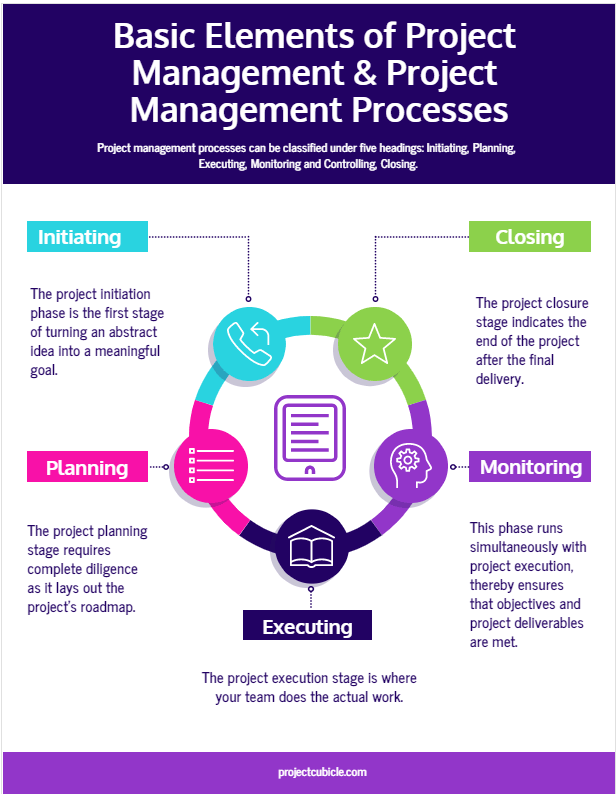
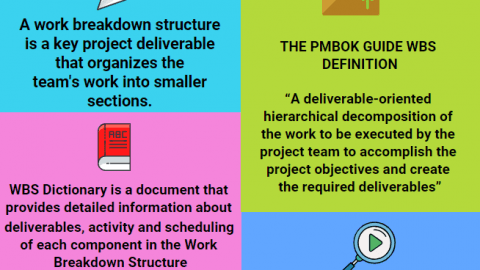
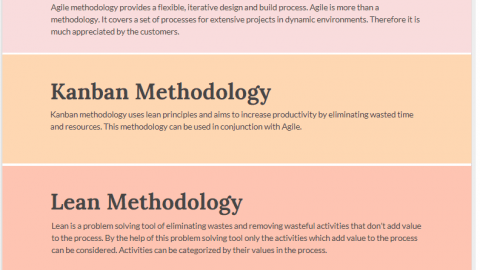


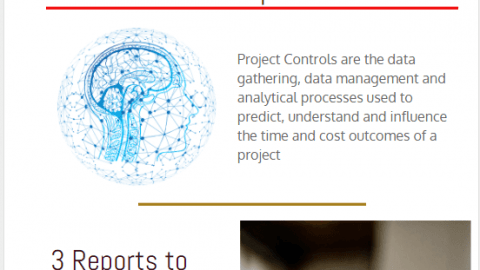

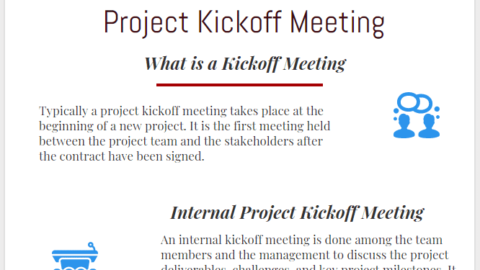
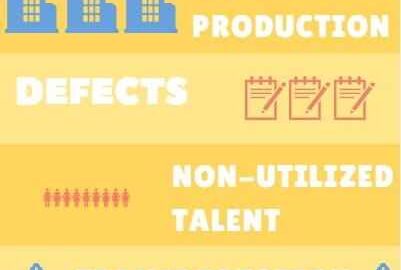

THANK YOU Brantlee Bhide
FOR WHAT YOU DID.
Great post! I completely agree that project management is all about planning, organizing, and controlling resources to achieve specific goals. As a project manager myself, I’ve found that having a clear understanding of the basic elements of project management is crucial for success. Thanks for sharing this insightful post!